Toyger: Breed Info and Care Guide
03.02.2022.
The canine kingdom is full of popular crossbreeds, like the Pomsky or Labradoodle hybrids. However, our beloved feline kingdom has very interesting mix breeds of its own. One of those crossbreeds is the adorable Toyger. The Toyger started as a way of raising awareness for tiger preservation, but since then, these cats have become fairly popular. Their adorable appearance makes them attractive even to people that don’t usually consider themselves cat lovers. Here’s what you should know about the handsome Toyger crossbreed.
Why is Toyger a crossbreed?
Let’s start with the fundamental question about Toygers - Why is it a crossbreed? Pureblooded cats, like the British Shorthair or the Persian, come from breeding two pureblooded parents of the same breed. For example, two Persian cats will produce Persian kittens. Their looks, characters, and even colors are defined in their standard. The thing that defines a breed is its ability to pass constant characteristics to its offspring.

Length:
Medium

Weight:
10 - 15 lb

Origin:
USA

Life Expectancy:
10 - 15 years
The Toyger is a crossbreed because it came to life as a result of mixing two different breeds. The Toyger is a mix between a Bengal and a tabby Domestic Shorthair cat. That means the Toyger gets half of its genes from one side of the family and half from the other.
What kind of a cat is Toyger?
If you’re looking deeply into the Toyger breed, you probably already know some things about them. These cats are crossbreeds, but they are fantastic pets. It is like sharing your home with a tiny tiger. To truly understand what type of a cat is the Toyger, we need to look at two things - their looks and their personality.
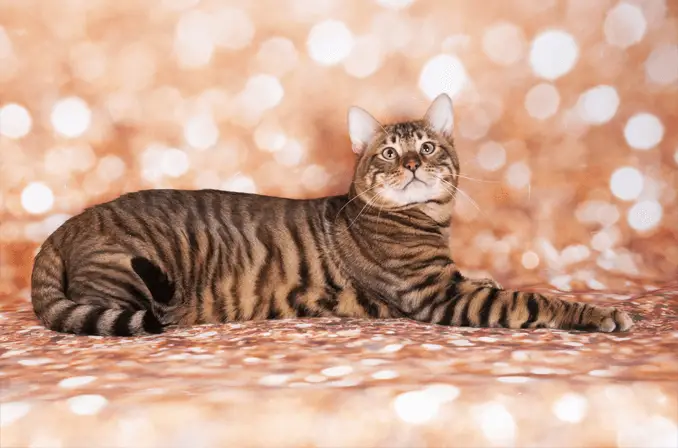
Toyger appearance
Let’s start with the imposing Toyger appearance. These cats have absolutely amazingly soft coats. They have thick, short coats with vertical stripes. The basic color should be orange because they were specifically bred to look like tigers as much as possible. The Toyger is not the largest cat, but it is not the tiniest either. Most adult cats are 10 - 15 pounds.
The coat is not the only characteristic we have to look at. These cats are a mixture of their parent breeds, so they inherit different characteristics from their parents. That means that two cats from the same litter can look differently. These cats have unique markings across their bodies and faces. The stripes should be sharp, and the darker the stripes, the better.
Cat Breed Characteristics
The personality of the Toyger
Another defining thing for a breed is its personality. Sharing your home with a tiger would be very cool, but it would probably be unsafe. Luckily, you can get a Toyger that looks like a tiger but has a temperament of a mild housecat. These cats should be very friendly and enjoy the company of their humans. They should be very cuddly, which should be one of their favorite activities.
If you’re interested in getting one of these cats, you should know they are very intelligent. They will thrive in households that will engage their minds and provide them with different toys they can play with. Toygers can even learn commands and walk on a leash. These cats can learn tricks and will enjoy an occasional game of fetch.
Toyger care guide
If you want a Toyger, you should know how to properly care for them. These cats might be crossbred, but they still have needs that need to be met. Here is how you can ensure your tiny tiger will be well taken care of.
1. High-quality nutrition
The first thing you need to make sure of is that your cat is on a high-quality diet. We know that the best cat foods might cost a bit more, but that is the only way you can make sure your cat will be as healthy as possible. Look for great ingredients, primarily animal proteins, included in the food of your choice.
2. Grooming
Toyger grooming includes more than just brushing. The good news is that cats do most of their grooming on their own. However, these cats have thick coats, which means regular brushing is necessary. Give your cat a bath every couple of months, and make sure you check its ears regularly. Like any other cat, the Toyger will require its claws are clipped every few weeks.
3. Mental activity
Cats as smart as Toygers need plenty of mental activity. You don’t want to have a bored cat at home because that is a recipe for behavioral issues. That doesn’t mean you have to actively exercise your cat, but providing it with a cat tree and interactive toys is a good idea. Plus, their favorite activity will still probably be napping and watching the world go by.
4. Regular vet visits
One of the most important things you can do for your cat is making sure your vet regularly checks them. Vets are trained to spot health issues early, and they will quickly notice something you might miss. All responsible cat owners should never skip vet appointments.
Toyger health
Many cat and dog owners believe that crossbreeds are healthier than pureblooded breeds. There is a theory that mentions “hybrid vigor,” and that theory says crossbreeds are more resilient. Cat and dog owners adapted that, and many animal rescue and welfare organizations use that argument as proof against breeding. However, the “hybrid vigor” theory applies to plants.
The truth is that crossbreeds get half of their genes from each parent, making them prone to health conditions and complications from both sides of the family. The best possible start you can give your new cat is to make sure it comes from two healthy parents. The Toyger is a relatively new breed, so vets and owners haven’t studied it like other pureblooded cats. Nevertheless, they drew some conclusions and discovered which health conditions these cats are prone to;
- Heart murmurs - Heart murmurs are not a health problem on their own. However, they usually point towards other health issues these cats can have.
- Hypertrophic cardiomyopathy - This is one of the most common health problems in cats. One of the symptoms of this health condition is heart murmurs.
- Patellar luxation - This is a congenital dislocation of the kneecap. It ranges from mild to severe, and vets have to determine how big of an impact it has on the cat and whether they should intervene.
- Feline infection peritonitis - Toygers are prone to viral infections, and feline infectious peritonitis is one of them. It comes from cat coronavirus strains.
These cats are generally considered healthy, and they have an average lifespan of 10 - 15 years.
World Cat Finder Team

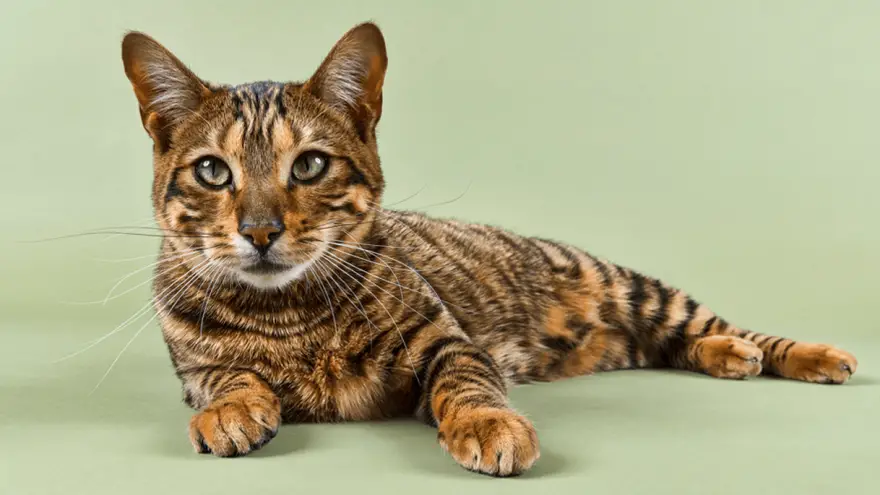
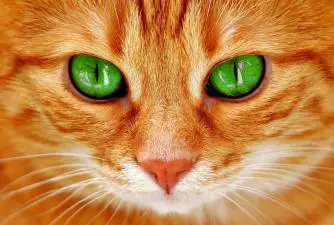
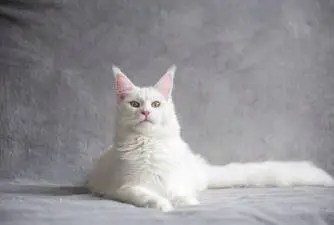
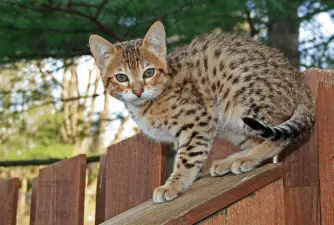
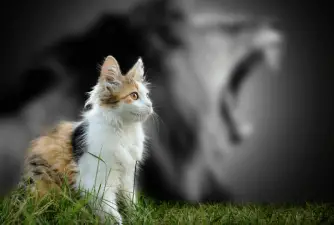

Share